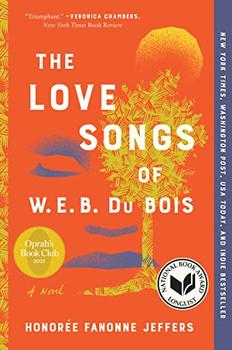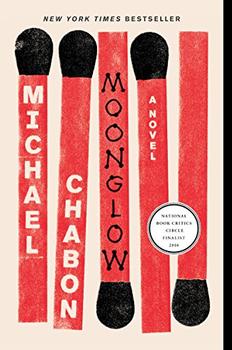Summary | Excerpt | Reviews | Beyond the book | Read-Alikes | Genres & Themes | Author Bio

A Novel
by Ntozake Shange, Ifa BayezaPraised as "sweeping" and "ambitious" for lacing complex genealogies with key moments throughout history, generational sagas can quickly amass mythical proportions as dramatic events ripple with consequence. The past, portrayed as a force which shapes contemporary lives, becomes something to honor, accept, or struggle against depending on each character's inclinations. On its surface, the story of the Mayfields seems to follow the familiar trajectory from tragedy to triumph, beginning with Mah Bette (a slave) and Julius Mayfield (Sweet Tamarind's plantation owner), branching out further when two assaults result in births, and concluding with concern toward others in need - but sisters and co-authors Shange and Bayeza enrich such potentially charged material in commendable ways.
They do not render women's efforts to prevail as sentimental acts of heroism, but instead, convey them as realities grounded in perseverance. They also remind us that although "Slavery leaves telling marks lasting generations," it is faith in the power of music that urges many of their characters forward. Thorough dedication to their title theme transforms Some Sing, Some Cry into an unusually textured examination of mothers and daughters, as well as the shifting currents that guide them.
Each woman experiences her respective era through new rhythms; the authors draw from spirituals, minstrel shows, ragtime, the beginnings of jazz, military bands, opera, and the Julliard school. Accounts of courtships, failings, and everyday moments intersperse with crisp lyrics. On different occasions, songs serve as seductive solos, sidewalk protests, a means for honoring the dead, aids for recalling family memories, and free-wheeling expressions of youth.
Among the daughters who are gifted singers, the most notable are Eudora (Mah Bette's granddaughter), her daughters, Lizzie and Elma, and their daughters, Cinnamon and Memphis. All of them possess remarkable drive, though their approaches differ when it comes to securing their futures. Some reveal a hardscrabble tenacity, while others remain keenly aware of the sacrifices made for them. Some sing for pleasure. Some find themselves attracted to musical men. Others view music as a potential profession. Over a span of many decades, they must learn to reconcile their perceptions of themselves - as descendants of a former slave, as women of mixed heritage during the years when anti-miscegenation sentiments could lead to violence, as artists and, perhaps more pointedly, as members of a particularly female-centric, sometimes fractious, yet loyal clan.
Coincidental encounters (from timely shifts in fortune to characters who reemerge just when their presence is most likely to stir the plot) could strike some readers as convenient, but nearly always remain within the realm of the possible. There are no dei ex machina; Shange and Bayeza demonstrate a smart sense for when to allow their characters to fight their own battles and when to introduce unbidden help or warnings. The authors' handling of plot and pacing are as deft as any musical score - rising, falling, repeating themes, weaving interludes with crescendos, and ultimately ending on a quiet uptick. For all the social brutality it exposes, and for all its intimate, more domestic griefs, Some Sing, Some Cry is not intended as a dark retrospective. In the midst of cruel circumstances, the women reinvent themselves with verve, maintaining a spirit of creativity as well as their own interpretations of dignity.
![]() This review was originally published in The BookBrowse Review in October 2010, and has been updated for the
November 2011 edition.
Click here to go to this issue.
This review was originally published in The BookBrowse Review in October 2010, and has been updated for the
November 2011 edition.
Click here to go to this issue.

If you liked Some Sing, Some Cry, try these:

The Love Songs of W.E.B. Du Bois
by Honorée Fannone Jeffers
Published 2022
The 2020 National Book Award–nominated poet makes her fiction debut with this magisterial epic - an intimate yet sweeping novel with all the luminescence and force of Homegoing; Sing, Unburied, Sing; and The Water Dancer - that chronicles the journey of one American family, from the centuries of the colonial slave trade through the Civil War ...

by Michael Chabon
Published 2017
Following on the heels of his New York Times bestselling novel Telegraph Avenue, Pulitzer Prize-winning author Michael Chabon delivers another literary masterpiece: a novel of truth and lies, family legends, and existential adventure - and the forces that work to destroy us.
Your guide toexceptional books
BookBrowse seeks out and recommends the best in contemporary fiction and nonfiction—books that not only engage and entertain but also deepen our understanding of ourselves and the world around us.